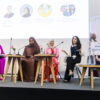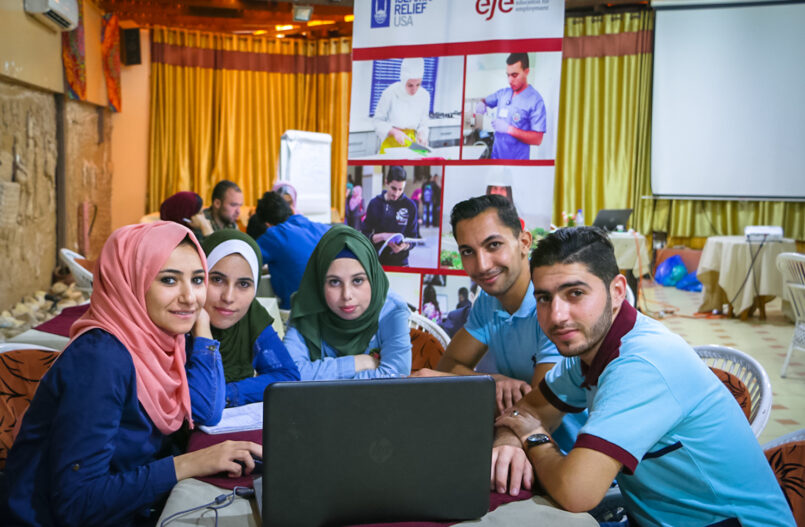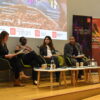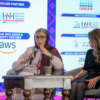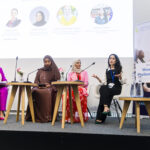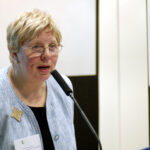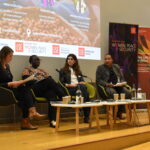With thanks to Jasmine Nahhas di Florio, Senior Vice President for Strategy, Partnerships & Communications, Education for Employment, for her kind contribution of this article elaborating on EFE’s mission in the region which AIWF is proud to support.
Women play a vital role in the economies of MENA, yet they only make up one quarter of the workforce, the world’s lowest female labor market participation rate. COVID-19 has illuminated these inequalities, with job losses disproportionately impacting women and youth in the MENA region. The pandemic has severely hit retail, tourism and hospitality jobs traditionally held by women. COVID-19 also has severely impacted the informal sector (62% of workers are women in MENA), part-time positions (as much as 50% are women in Morocco and Palestine, for example), and school closures are forcing many women to give up their jobs – a global trend. The pandemic is expected to create 700,000 job losses for women in the Middle East in 2020, about 40% of the 1.7 million total expected job losses.
Women can drive economic prosperity if they are given the opportunity. In the midst of the pandemic’s disruption, there is opportunity for women given surging growth in digital jobs, e-commerce and online customer support, health care, and the growing gig economy where women can work from home. But it is crucial to skill up first-time jobseekers and reskill women who lose their jobs. And we must go further than training – to connect women to concrete job opportunities opening now and in an extended COVID recovery period.
This is the mission of Education For Employment (EFE), to create economic opportunities for unemployed youth in MENA so that they can create a brighter future for themselves, their families and communities. EFE is the leading nonprofit that trains youth and links them to concrete job opportunities across MENA. This pivotal region is the hardest place on the planet for youth to get their first job, where youth unemployed has been close to 30% and is now soaring during the pandemic. EFE focuses on the demand side, partnering with businesses that need qualified employees with young women and men seeking employment. Since 2006, locally-run EFE Affiliates in Egypt, Jordan, Morocco, Palestine, Tunisia, Saudi Arabia and Yemen, with support hubs in the USA, Europe, and the UAE, have connected more than 111,000 youth to the world of work while providing 3,000 businesses with the entry-level talent they need to grow. Over 57% of EFE’s graduates are young women, reflecting EFE’s special focus on supporting women’s entry into the workforce.
We are now focusing even more on quality jobs in growing sectors and skills that will make women competitive in local, regional and international markets. Technical and digital skills and English language capacity are in high demand. Human skills (such as leadership, teamwork, communication and critical thinking) are increasingly in demand precisely because so much is going digital. As opportunities to learn and work increasingly go online, it is even more urgent to ensure access for women. Internet access remains an issue, and few households have multiple laptops or desktop computers. Yet EFE is finding that pivoting to online training during COVID-19 has enabled us to reach rural women who normally could not have traveled for in-person training. There is so much we can do to support women as they seek to build their futures and support their families through skills and job opportunities. To join the #Work4Women campaign, please visit www.efe.org.

